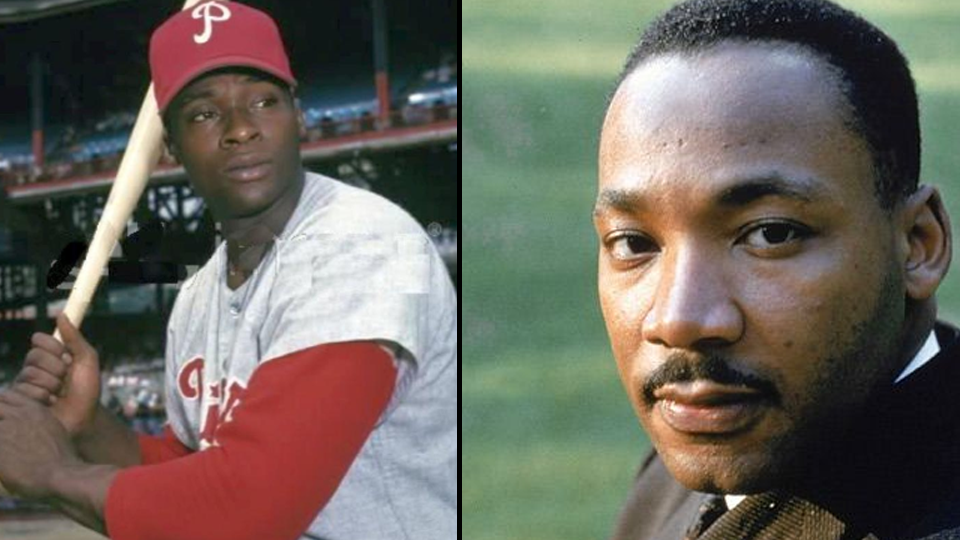As the nation commemorates Martin Luther King Jr. Day, we delve into a compelling narrative that intertwines the stories of two influential figures—Dick Allen and Martin Luther King Jr. These men played pivotal roles in the confluence of civil rights and baseball during the transformative 1960s, leaving an indelible mark on the intersection of sports and social justice.
In an era where King fervently championed civil rights and equality, Allen, an exceptional African American player born in 1942 in Wampum, Pennsylvania, navigated the challenges of excelling in a sport grappling with racial tensions. Allen's rise to prominence as a remarkable player with prodigious talent and a powerful swing began with Elmira in the New York-Penn League in 1960.
The 1960s Phillies, like many teams of the time, were confronting the complexities of integration. Allen's contributions to the team positioned him not only as a formidable player, but as a trailblazer challenging the status quo. Known for his versatility on the field, Allen played multiple positions, earning the 1964 National League Rookie of the Year award for his prowess with the bat.
Allen's journey reflects the broader struggles of African American athletes during the Civil Rights Movement. He confronted overt racism, both from teammates and fans, and the
resilience he displayed in the face of adversity underscored the
difficulties African American athletes encountered during the era. His perseverance and unwavering commitment to excellence though made him a symbol of progress within the sport. However, racial tensions within the organization and the broader community added layers of complexity to his time in Philadelphia.
The assassination of King in 1968 sent shockwaves through the nation, and Philadelphia, deeply connected to both civil rights and baseball, mourned the loss of a visionary leader. The aftermath prompted reflection within the city's baseball community, emphasizing the work that remained to be done in the pursuit of equality.
In Philadelphia, King's death intensified existing racial issues, with the city becoming a microcosm of the broader struggles for civil rights. The African American community faced heightened challenges, and the Phillies found themselves amid a changing social landscape. While Allen's achievements on the field symbolized progress, the racial tensions within the team mirrored the wider disparities present in the city.
Moreover, Major League Baseball took concrete steps to commemorate King's legacy. Teams observed moments of silence before games, paying respects to the fallen civil rights leader. Players, coaches, and staff donned black armbands as a visible symbol of mourning and solidarity. In addition, MLB organized fundraisers dedicated to advancing civil rights causes, channeling the collective influence of the sport toward meaningful social change.
While their paths never directly crossed, Allen and King shared a legacy of challenging the status quo and overcoming adversity. Allen's resilience in the face of racial tensions within the Phillies organization and King's unwavering commitment to civil rights both contributed to a narrative of progress and change.
In commemorating Martin Luther King Jr. Day, we pay tribute to the unyielding spirit of integration in Philadelphia baseball, where the courage of individuals like Dick Allen and the ideals of Martin Luther King Jr. converged to shape a narrative of progress, resilience, and the enduring pursuit of equality. These integral threads in the rich tapestry of civil rights and baseball history serve as a reminder of the lasting impact of individuals who dared to challenge norms and pave the way for a more just society.



